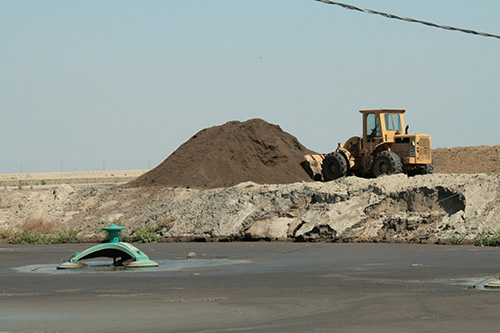
by Amanda Smith Hoard's Dairyman Associate Editor
Tractors hit the road with renewed vigor over the holiday weekend in America's Dairyland. As is the case in many dairy states with a cropping emphasis, the pressure is on to apply manure, work ground and finish planting. In the haste to make feed for the coming year however, we must remember to be vigilant when emptying manure basins and applying "black gold" to our land.
While it has value as a fertilizer, when handled improperly, manure can pose some significant hazards. On-farm, every employee should be aware of the risks involved with manure management.
Manure storage allows for the build up of toxic fumes caused by hydrogen sulfide, methane, carbon dioxide and other noxious gases. As manure decomposes under anaerobic conditions, it creates an oxygen-deficient atmosphere.
In the Virginia Dairy Pipeline, dairy extension agent Cynthia Martel, highlighted procedures we must have in place when working in and around manure pits and basins. All contained facilities should be ventilated, tested for atmospheric quality, posted with hazard signs and fenced off from humans and animals.
Individuals working with manure should:
- Never enter the pit without back-up
- Require one or more individuals to be present during entry
- Require proper equipment, breathing equipment, safety harnesses and mechanical lifting equipment
- Work with local public safety officials to set up on-farm drills
- Have protocols posted for all types of manure related situations
- Have a phone nearby to call 911 or an environmental agency to report a spill
- Teach all personnel on the farm how to react in the event of a manure related incident
 The author, Amanda Smith, was an associate editor and an animal science graduate of Cornell University. Smith covered feeding, milk quality and headed up the World Dairy Expo Supplement. She grew up on a Medina, N.Y., dairy, and interned at a 1,700-cow western New York dairy, a large New York calf and heifer farm, and studied in New Zealand for one semester.
The author, Amanda Smith, was an associate editor and an animal science graduate of Cornell University. Smith covered feeding, milk quality and headed up the World Dairy Expo Supplement. She grew up on a Medina, N.Y., dairy, and interned at a 1,700-cow western New York dairy, a large New York calf and heifer farm, and studied in New Zealand for one semester.








